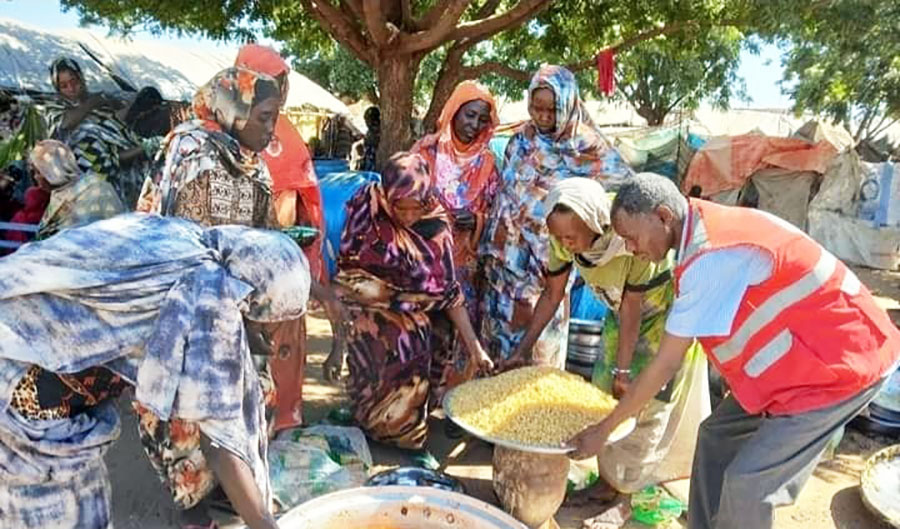
Red Cross: Community kitchens secure food for displaced persons in Sudan
Moatinoon
The International Committee of the Red Cross (ICRC) said that thousands of people in Northern Darfur, Sudan, have begun to receive hot meals as hostilities intensify and food shortages rise sharply.
Eight community kitchens a day offer two hot meals to some 10,000 newly displaced people to Zamzam camp south of El Fasher. The city has experienced heavy fighting over several months, disrupting the provision of essential supplies and forcing tens of thousands of people to flee their homes.
Daniel OMalley, head of mission to the International Committee of the Red Cross in Sudan, said: "Some camp residents told us that they had only one meal painstakingly clogging their throats a day, while eating almost no foods containing protein, fruit or vegetables."
"Community kitchens are the only means of securing many families, but they will not be enough to avert a worsening humanitarian crisis."
Community kitchens are an ancient Sudanese tradition in which people come together to cook and share food. This project is supported by ICRC and the Sudanese Red Crescent Society.
Malak Abdullah Ali, a resident of the camp who fled El Fasher as fighting approached her home, said: "I feel full now. Ive never felt full for the last seven days. We have not had a decent meal here in Zamzam camp for seven months. "
The Zamzam camp, which was established in 2004, is home to nearly half a million people and is regarded by communities as the last safe haven in Northern Darfur. The problem of food shortages is expected to worsen as new displaced families continue to arrive to escape fighting in El Fasher. About one third of the camps water distribution sites are not operational, while medical supplies are running out.
OMalley added: "The situation in El Fasher and its surrounding areas remains very bad, and the civilian population is stuck between the two sides of the fighting and their choices to move safely are very limited."
"We make an urgent appeal to the parties to provide humanitarian space. It is the responsibility of the parties to the conflict to ensure that civilians have access to humanitarian assistance and services."

